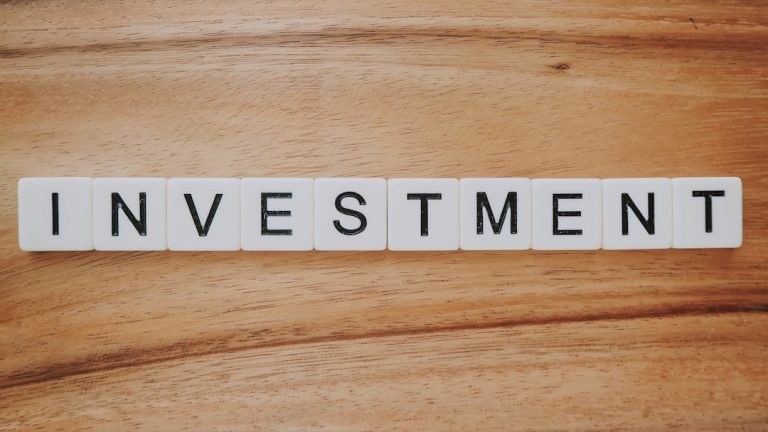Meta Description: Understand the differences between pre-seed and seed funding rounds to make informed decisions for your startup’s early-stage investment.
Introduction
Navigating the landscape of startup investment stages can be daunting for new entrepreneurs. Among the earliest stages, pre-seed and seed funding rounds play crucial roles in transforming an innovative idea into a viable business. Understanding the distinctions between these funding stages is essential for making strategic decisions that align with your startup’s growth trajectory.
What Exactly is a Pre-Seed Funding Round?
Pre-seed funding is the initial capital that founders secure to turn their concept into a tangible product or service. At this stage, startups focus on:
- Market Research: Identifying target audiences and validating the business idea.
- Prototype Development: Building an MVP (Minimum Viable Product) to demonstrate functionality.
- Early Customer Validation: Gathering feedback from early adopters to refine the product.
Typically, pre-seed funds range from tens of thousands to a few hundred thousand dollars. This capital often comes from personal savings, friends and family, or early-stage angel investors. Given the high risk, pre-seed investors are betting on the founders’ vision and potential rather than established metrics.
So How Do I Know I’m Raising a Seed Funding Round?
Seed funding marks the transition from concept to real business operations. Indicators that you’re ready for a seed round include:
- Product-Market Fit: Evidence that your product meets a specific market need.
- Traction: Metrics such as user growth, revenue, or active engagement.
- Team Expansion: Hiring key team members to scale operations.
- Valuation Growth: Higher valuations reflecting reduced risk and increased potential.
Seed rounds typically involve larger investments, often in the range of hundreds of thousands to a few million dollars, sourced from angel investors, venture capital firms, or seed-focused accelerators.
Am I Actually Raising a Pre-Seed or Seed Funding Round?
Determining whether you’re in the pre-seed or seed stage depends on several factors:
- Development Stage: Pre-seed is for early development, while seed is for scaling.
- Funding Amount: Seed rounds generally seek more substantial investments.
- Investor Type: Seed rounds attract more institutional investors compared to the more personal nature of pre-seed funding.
- Business Metrics: Seed stage startups should exhibit some level of product-market fit and traction.
Ultimately, it’s about where you stand in your startup’s journey and the specific needs you aim to address with the funding.
What Common Mistakes Do I Need to Avoid When Raising Money?
Lack of a Clear Business Plan
A well-structured business plan is vital. It outlines your vision, goals, market analysis, financial projections, and go-to-market strategy. Investors need to understand your business model and growth potential clearly.
Underestimating the Importance of Networking
Building relationships with potential investors is crucial. Attend industry events, leverage platforms like LinkedIn, and consider joining accelerators to increase your visibility and credibility.
Ignoring Investor Feedback
Constructive feedback can refine your business strategy. Ignoring it may hinder your ability to secure funding and improve your startup’s prospects.
Not Preparing for Due Diligence
Ensure all financial records, legal documents, and business operations are in order. Being unprepared can delay or derail investment deals.
3 Examples of Successful Companies That Raised Pre-Seed Rounds
Robinhood
Robinhood secured its pre-seed round through Y Combinator in 2012. This initial funding enabled founders Vladimir Tenev and Baiju Bhatt to develop a commission-free trading platform, paving the way for its later success with a market capitalization of approximately $8.5 billion by October 2024.
Airbnb
With a modest pre-seed investment of $20,000 from Y Combinator in 2008, Airbnb’s founders launched their online lodging marketplace. The early funding was instrumental in validating the concept, leading to its growth into a global hospitality leader valued at around $82.73 billion by October 2024.
Notion
Notion raised pre-seed funding in 2013, allowing founders Ivan Zhao and Simon Last to create their all-in-one productivity platform. By 2023, Notion had scaled impressively, reaching a valuation of $10 billion through a strong user base and strategic growth.
3 Examples of Companies Who Went Straight to a Seed Round
Slack
Slack bypassed the pre-seed stage by securing seed funding from Greylock Partners and Andreessen Horowitz in 2013. This substantial investment fueled Slack’s rapid user growth, culminating in its acquisition by Salesforce for $27.7 billion in July 2021.
In 2010, Pinterest raised its seed round with support from Andreessen Horowitz and Bessemer Venture Partners. This strategic funding allowed Pinterest to skip the pre-seed phase, leading to a market valuation of approximately $22.45 billion by October 2024.
Canva
Canva secured seed funding from Sequoia Capital and Matrix Partners in 2013, enabling the graphic design platform to skip the pre-seed stage. By September 2021, Canva had grown into a $40 billion valuation powerhouse, democratizing design with its innovative approach.
What Should I Do After Determining My Funding Round?
Once you’ve identified whether you’re in the pre-seed or seed stage, focus on:
- Tailoring Your Pitch: Highlight the relevant milestones and metrics that align with your current funding stage.
- Optimizing Terms: Ensure the investment terms are favorable and reflect your startup’s valuation and growth prospects.
- Building Relationships: Continue networking to build trust and attract the right investors who align with your vision.
Choosing the right early-stage investment is pivotal for your startup’s success. Making informed decisions at this stage can set the foundation for sustainable growth and future fundraising rounds.
Ready to take the next step in your startup journey? Visit Oriel IPO to connect with UK-based investors and leverage SEIS/EIS tax incentives. Empower your startup with the right funding and support to achieve your vision.
Related Articles
- 5 Startup Growth Strategies That Market Leaders Follow
- How to Create a Healthy Startup Budget in 6 Steps
- Resource Optimization: The Guide to Maximizing Performance
- How to Hire and Structure a Finance Team for a Growing Startup
- 22 Tips from Founders on How to Build a Successful Startup
- 5 Proven Strategies to Improve Your Operational Efficiency



